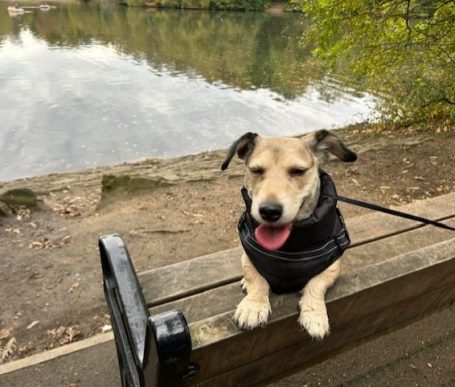


Your First Counselling Session- (What to expect)
By Natasha Roe
Safe Space
The process of counselling starts when you reach out to the counsellor. But for the purpose of this blog, I want to focus on what to expect from your first session with your counsellor. The session can be in person-face to face, via telephone or online. The counsellor’s role is to create a safe environment where you feel at ease. Having a safe space free from judgements will allow you to speak freely. By doing so you will be building a relationship with your counsellor and also working on your presenting issues.
Relationship
A relationship will begin to form between yourself and the counsellor. The counsellor will show you respect from the very start by using their core conditions and honouring your confidentiality. During the first session the counsellor will explain how the sessions will work for example with Person-Centred therapy I always say to my clients, “The sessions will be client led. You are the expert of yourself, and I walk alongside you on this journey. However, my job is to make sure you feel heard and not to give advice.”
Goals
The first session is the perfect time to discuss your goals and your ideal outcomes from therapy. This is the time to make sure the counsellor has a clear understanding of your expectation. This conversation is important to help you feel confident in your choice of counsellor because you will be working together to achieve your personal goals.
Challenges
In the first session the counsellor will discuss with you, your reasons for coming to counselling and explore the challenges you are facing. The counsellor will work with you to support your mental health journey by going at your pace.
Frequency
The first session is a way to explore your needs. Every client is different, and some clients need more or less sessions depending on their circumstances. In the first session the counsellor can work with you to figure out the frequency of sessions that you need. Some clients have weekly, fortnightly, and monthly sessions but again this depends on the client and their commitments. Together you and your counsellor will set up the session frequency to create your future road map. By having the road map, you can work out and plan your next session. Ideally the next session will be booked within the first session.
General Questions
The perfect time to ask any questions would be in this session so that you have a clear understanding of the entire process. Also, the counsellor may want to ask you some questions for a deeper understanding of your needs or just for clarification purposes. But it is important to remember that no questions are silly and that you can ask as many questions as you like. Counselling sessions can feel very daunting so having answers to an unfamiliar situation can really help. Regardless of if you have or have not had counselling before, you can use this time to get all the answers you need and remember this is part of building your relationship with your counsellor. If you do not have any questions and you are ready to go that is fine too. Good luck in your journey.
Conclusion
The first session may be daunting, but it will be the ice breaker to your future sessions. You will be able to get a feel for the way the sessions will run. You will connect with the counsellor and will see if you still think you are the perfect fit to continue the sessions. As I have previously said, the client is the expert, and they know what is best for them. The first session is the best way to discover if this is absolutely right for them in terms of, making changes or continuing with counselling. Lastly the first session is the contract building session where the client and counsellor agree to each other’s terms before they begin the therapeutic relationship
If you would like to leave a comment or contact me for any enquiries, please feel free to fill out the form below.
7 Reasons to pay for Private Counselling
By Natasha Roe
1. Faster Access. The waiting times are a lot less than free counselling through the NHS. You could be waiting up to 6 months for some charities that provide free counselling. Private counselling can be accessible in a matter of weeks. Sooner depending on the counsellor’s availability.
2. You can find a therapist that is trained in the style of therapy that best suits your life experiences and emotional difficulties.
3. You can choose the therapist you want to work with.
4. You decide the number of sessions. There is no limit.
5. You have more choice in the frequency of your appointments. (Weekly, fortnightly, or monthly)
6. You are able to return to the same therapist over and over, if and when you need to
7. You can choose to have therapy even if you are not clinically “depressed or anxious.”
Conclusion
Counselling can help reduce symptoms of anxiety and depression and can lead to lasting improvements in mental health.
If you would like to leave a comment or contact me for any enquiries, please feel free to fill out the form below.
My Journey to Becoming a Counsellor
By Natasha Roe
My name is Natasha, and I am a Person-centred Counsellor. I never knew I wanted to be a counsellor until I had counselling. I have always worked in retail and food related jobs so when I decided to have counselling, I was able to explore my thoughts and the theme that came up for me was that I felt stuck. I felt stuck in a job I hated, and I was scared of change.
Anxiety
My whole being was driven by anxiety and I felt I was not good enough to do anything else. The entire process felt like an impossible task. I remember thinking the idea of looking for jobs and sending a CV off was terrifying because I was scared of interviews and worrying about the questions they would ask. I had intrusive thoughts that I was not as smart as the other applicants. I was anxious that they would look at me and think that I was lacking experience. The worse part was not knowing what jobs to apply for because I did not know what I wanted to do. I was completely lost and could not find my way through the fear that I was feeling.
Counselling
In my sessions I would talk about my desire to learn and to be in a different job. My dreams were for me to have a career, I did not know what career just that I wanted a job that gave me job satisfaction. A job where I help people because that is when I am truly my happiest when I am helping somebody else. I have always been a selfless person, and I felt my job at the time was taking advantage of that. I felt used and undervalued as an employee. I was never appreciated and that contributed to my anxiety. I was always trying to live up to high expectations and was constantly made to feel like I needed to do better.
Taking the plunge
I decided that I needed to make some changes. I felt that my actions and words were not aligning, and I knew I needed to do something different. I was also aware of how much fear I had but in order to combat the fear I needed to do things at my pace. I felt overwhelmed in my thoughts because I was always thinking of the future instead of being in the present. I decided in order to overcome my anxiety I needed to do things in stages. That felt more manageable and less daunting for me.
The Four Steps
- Go to the Community Centre and work on my CV.
- Apply for jobs at the Job Club within the Community Centre.
- Attend an open evening for upcoming courses at the Community Centre.
- Sign up to the Introduction to Counselling Course.
Conclusion
When I signed up to the Introduction to Counselling course, I had no idea where that would take me. I honestly thought I would sign up to another course afterwards to find my path. It turns out that course changed my life. After just six short weeks I was completely invested in Counselling. I did not want to study any other course other than the higher levels of Counselling. I then signed myself to the level two course and worked up to Level 5. I have found my passion, I loved learning the new theories and finding new skills along the way. Every counsellor will tell you that they themselves went on a path of self-discovery whilst studying counselling. Counselling becomes your own journey, and you begin to know yourself on a deeper level. I became a friend to myself and a better friend to others. Not only do I get to help others to feel better, but I also feel better.
I am the person I was always meant to be thanks to Counselling.
If you would like to leave a comment or contact me for any enquiries, please feel free to fill out the form below.
Get in Touch
- Phone: 07551 150834
- Email: hello@therapywithtasha.com
Feel free to reach out with any questions or to book your session. I'm here to support you on your journey towards mental wellness.
We need your consent to load the translations
We use a third-party service to translate the website content that may collect data about your activity. Please review the details in the privacy policy and accept the service to view the translations.
